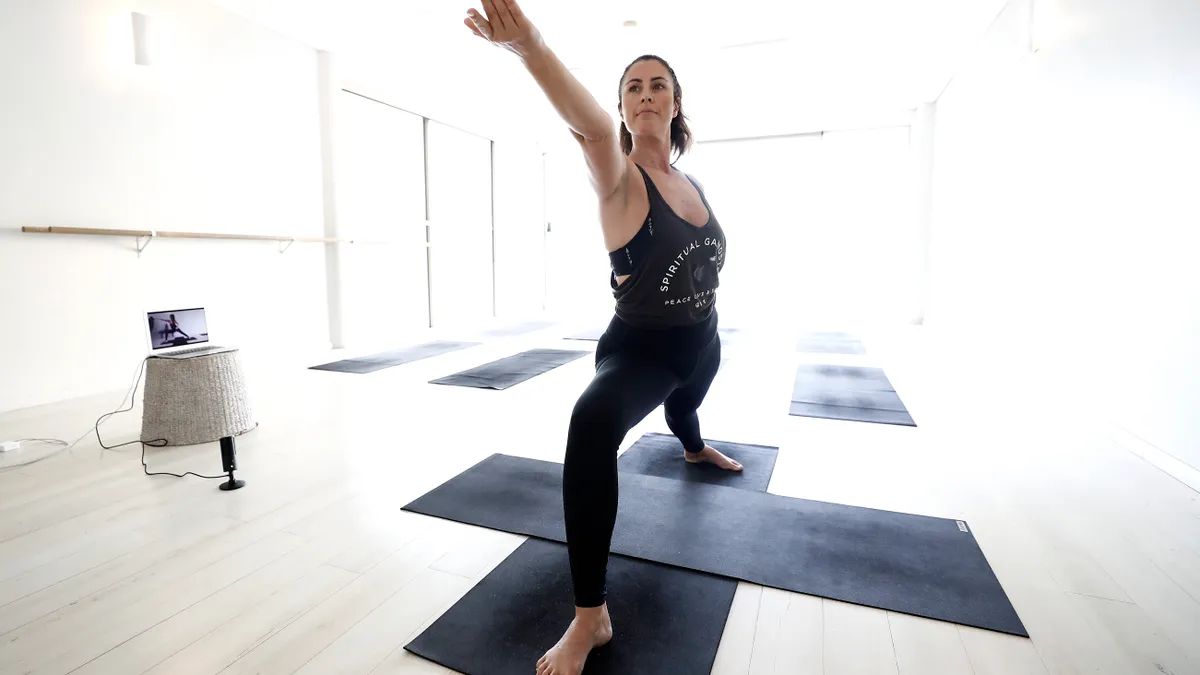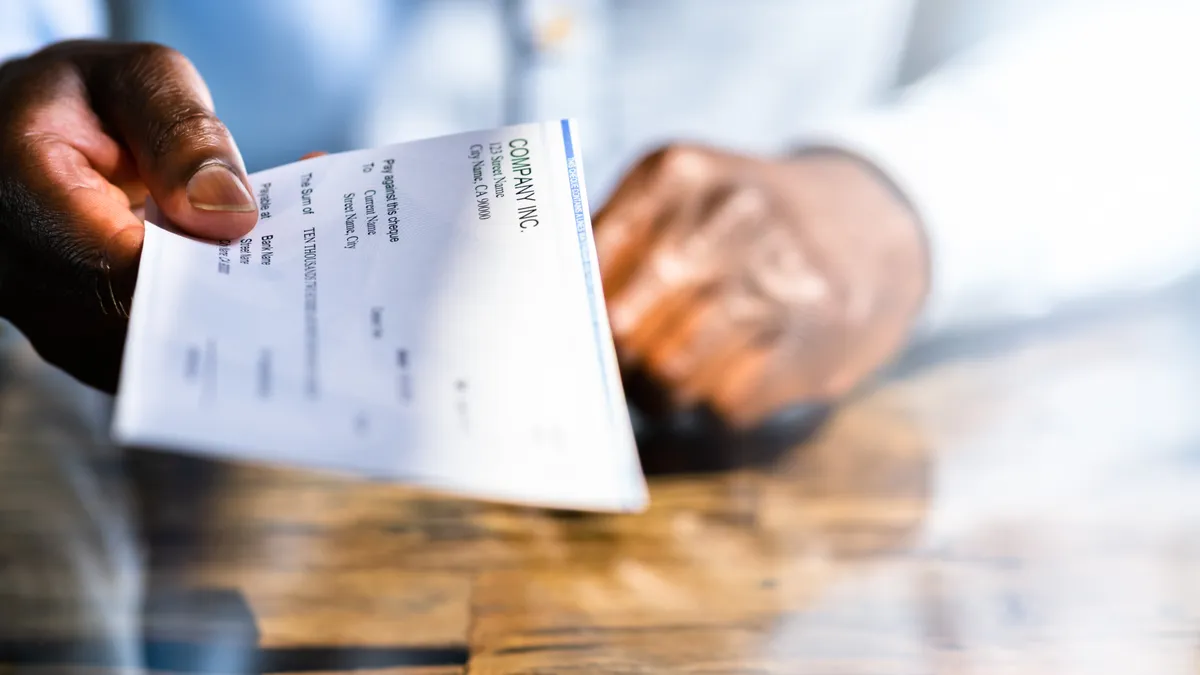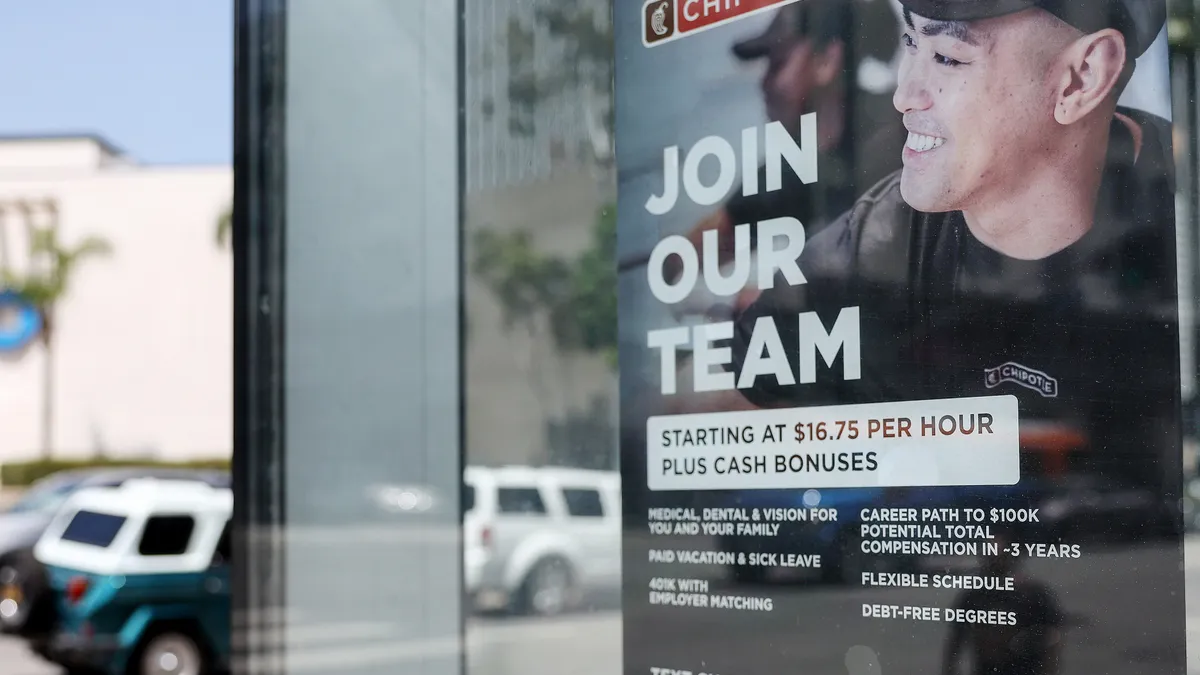If your workplace has 100 employees, it's statistically likely that 19 of them are currently struggling with some form of mental illness, according to digital platform Unmind. With mental health struggles on the rise and current offerings often not meeting the mark, many employers are exploring ways to address this rising need, from extra time off to free counseling services.
Unmind, a resource platform offered by companies around the world — including Uber, Samsung, WeWork and British Airways — gives employees an opportunity to monitor and support their mental health before it reaches crisis levels.
Nick Taylor, a clinical psychologist and co-founder of Unmind, talked to HR Dive about why mental health should be examined regularly and what trends are emerging from the platform.
Editor's note: This interview has been edited for clarity and brevity.
HR DIVE: Can you tell me a little bit about how you got the idea for Unmind?
NICK TAYLOR: I've spent my whole life really interested in the topic of mental health — what it means to be a human, really. After getting a degree in clinical psychology, I went into the National Health Service [in the United Kingdom], where I became a clinical leader, and also became a visiting lecturer at universities, such as University College London, and King's College London's Institute of Psychiatry, one of the world's most preeminent mental health organizations.
Over that time, I became frustrated with the state of play. Those frustrations really boiled down to the fact that we don't focus on prevention when it comes to mental health; we focus on reaction. And that's in stark contrast to how we approach other areas of healthcare. We know prevention is better than cure. It's why we teach our kids from the age of one to brush their teeth. It's why, even in the height of lockdown, we were able to go and spend an hour exercising every day. But when we sell prevention, we sell it very aspirationally. You can't buy a dental product with a picture of bad teeth, you can't find Nike running shoes accompanied by anyone other than an athlete wearing them on the box.
But with mental health, it's always a black and white image, people holding their head in their hands. It's portrayed very negatively. In fact, I think for many people, when they hear the term 'mental health,' they actually think about mental ill health, but mental health is something we have from the moment we're born to the moment we die. Far from just being a set of problems, it's actually our ability to think and be creative and problem-solve and feel all the emotions that we feel that make life so worthwhile. And far from being something we should stigmatize, it's something that we should celebrate.
My second frustration was that when it comes to accessing care for problems, people don't get to the right care at the right time. That's partly because of systemic social issues, such as affordability, but it's also partly because people can't measure their mental health and understand how they are.
So, five years ago this August I left the NHS to co-found Unmind, always knowing that I wanted it to be focused on proactive promotion of well-being and preventative approaches to mental health, always knowing that it should be based in science and that measurement should be at the heart of that, and always knowing that it was going to be for the workplace. Organizations are facing massive negative impact as a result of the scale of mental illness. The leading cause of absenteeism, presenteeism and staff turnover is mental ill health. Organizations need to do more to support employee well-being. Finally, I knew I wanted the company to be digital, so it could truly be global in scale.
What does Unmind do? If I were an employee, how would I use it and what kind of benefits would I get from it?
TAYLOR: Unmind is a workplace mental health platform, so very much for the workplace, and we bring value in two ways.
The first is that we empower employees to take proactive care of their mental health. They can download an app or they can access it via a web-enabled device. When they create an account, that invites them to complete what we call the Unmind Index, which is an assessment tool that we created in collaboration with some of the world's leading universities. It gives the employee unprecedented insight into their mental health. And based on their scores, they are then signposted to content we've created in-house with some of the world's leading authors, academics and clinicians to help them work on that particular part of their health — be it sleep or anxiety or how to focus better. We will also signpost all the services they have at their organization. We provide mental health training to managers.
The second way we bring values is to the employer. The employer can aggregate and anonymize the employee data, so they get unprecedented insight into how their people are, with anonymity being key. With that data, they can start designing mental health strategies, truly designed to meet the needs of their organization. They can start looking at this data and then driving a really meaningful well-being strategy, ensuring employees get the right care at the right time.
Can you talk a little more about how you protect employees' privacy regarding their mental health?
TAYLOR: Nothing an employee ever does on the platform will ever be visible to an employer; the employer would never know where the information came from. At no point would your organization ever know whether you've created an account or what you're doing on the account or any of your mental health data — it's just not visible to them. The employee data is the most precious thing to ask of them and we would never do anything to jeopardize that.
Tell me about the resources. For example, if I had anxiety, would I have articles to read?
TAYLOR: It's more than articles. It has video, audio and interactive elements. We work with these top experts in their field, and then, with really high production quality, bring to life what their teachings are. For example, we work with a man called Professor Paul Gilbert, who is one of the leading creators of compassion-focused therapy, which is a very dominant form of psychological approach to help people with anxiety. We work with Paul to bring his teachings to life with beautiful animations and graphics and storytelling narrative. So it's hyper-engaging, and therefore it's really impactful. We also have an in-house science and research team who then track the efficacy and value of all of the content we create.
You spoke about the benefits to employers of having something like this. Approaching from the other side, what are the impacts of employers neglecting their employees' mental health? What can happen in that situation?
TAYLOR: I think if organizations want to be truly competitive, they will invest in the mental health of their employees, because it will not only improve the productivity of the business, it will also improve the culture of the business as well — and also the reputation of the business. We know that if people are in psychologically safe environments where they feel they can talk about their health, they can talk about their mental ill health, it will be better for the company's ability to grow. And obviously, if a company has a good reputation, it's going to attract and retain top talent. And as I said earlier, the leading cause of absenteeism, presenteeism and turnover globally is mental illness. So organizations have a massive problem they need to fix, but also a massive opportunity by investing in the mental health of employees.
What are some of the things that you're finding through the platform or that employers are finding? Where can they create improvements for their employees?
TAYLOR: We have seen some general trends. One is around content to support people to understand the implications of, you know, living with COVID, maintaining our well-being during this time. Content around sleep has been enormously popular; sleep problems globally have increased as a result of COVID. For a myriad of reasons, we have seen an increase in reported problems around low mood or high anxiety.
But equally, at the start of COVID, we saw an increase in people reporting a sense of connection to one another, which I think is a much more positive trend. It's really interesting and maybe it's not something we would have predicted, but it's great to see.
Then I think what we're seeing more broadly around the topic of mental health in the workplace is organizations really wanting to train and empower their managers to understand how to have conversations around mental health, and how to support the people they manage.
Organizations are also wanting evermore to be data-driven in their mental health approach: How are their people? Can they be reporting mental health data to the board? Because historically organizations have relied on absenteeism data or access to EAPs or access to medical insurance, and that's actually reflective of a very small proportion of our population. But increasingly, organizations are saying, 'Well, we want to know how everyone is, so that we can really support everyone to get the right care at the right time.'
This is a difficult question, because I know you're a global company. But take a company with a pretty standard offering of employee benefits. Why is the current offering not really stacking up in terms of what's needed?
TAYLOR: The historical approach to the topic of mental health has been to put all of our focus on people who have mental illnesses. And the problem is that category keeps getting bigger and bigger and bigger, and we just can't build enough nets to catch people as they kind of fall into that category of mental illness. If this were dentistry we were discussing right now, it would be like organizations only investing in dentist chairs and waiting for people to develop such bad teeth that they have to drill, drill, drill, put in fillings, replace teeth. And somebody would come along and say, 'Hey, guys, stop building dentist chairs and give everyone a toothbrush.' That's the solution to this problem in the long term.
That's what we're saying about mental health. All of the focus has been on reactive solutions; we wait for people to get unwell and we try to get them a solution for them. But there aren't enough therapists, clinicians and social workers in the world to support those people. We're saying, 'Hold up. Stop putting all your attention on reactive care and focus your attention on proactive care.'
You don't go to bed on Monday night with no symptoms of clinical depression and then wake up on Tuesday morning with clinical depression. It happens over time. There are many, many, many, many places on the mental health spectrum where you can meet somebody before they fall into developing mental illness.























